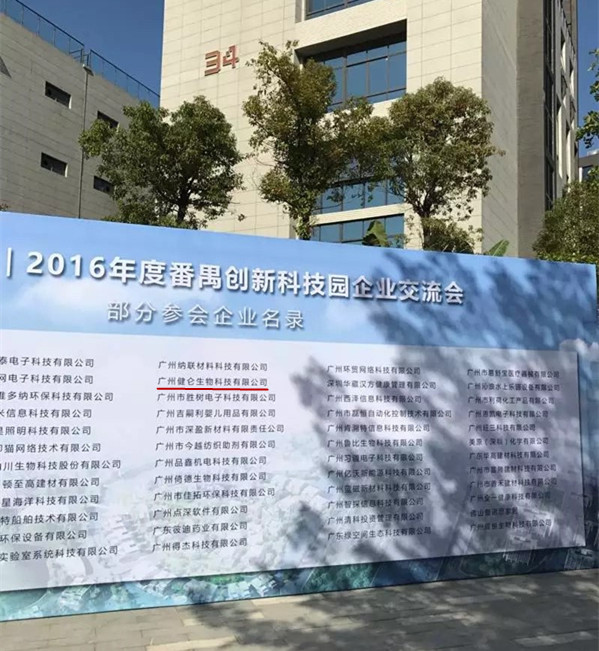- 產品描述
諾如病毒核酸(PCR)檢測試劑盒
廣州健侖生物科技有限公司
主要用途:用于檢測糞便標本中的諾如病毒抗原,以支持諾如病毒感染的診斷。
產品規格:20T/盒
存儲條件:2-30℃
諾如病毒核酸(PCR)檢測試劑盒
我司還提供其它進口或國產試劑盒:登革熱、瘧疾、西尼羅河、立克次體、無形體、蜱蟲、恙蟲、利什曼原蟲、RK39、漢坦病毒、深林腦炎、流感、A鏈球菌、合胞病毒、腮病毒、乙腦、寨卡、黃熱病、基孔肯雅熱、克錐蟲病、違禁品濫用、肺炎球菌、軍團菌、化妝品檢測、食品安全檢測等試劑盒以及日本生研細菌分型診斷血清、德國SiFin診斷血清、丹麥SSI診斷血清等產品。
歡迎咨詢
歡迎咨詢2042552662
【產品介紹】
諾如病毒核酸(PCR)檢測試劑盒
二維碼掃一掃
【公司名稱】 廣州健侖生物科技有限公司
【】 楊永漢
【】
【騰訊 】 2042552662
【公司地址】 廣州清華科技園創新基地番禺石樓鎮創啟路63號二期2幢101-3室
【企業文化】

高階 元生物類別的起源歷來是進化生命科學的核 心命題。包括人類在內的 脊椎動物譜系總根底起源,涉及到脊椎動物 兩大類間的演化關系,因 而不僅是學術界長期探現存脊椎動物中zui原 始的一類,沒有上下頜, 又稱無頜類。現生種類有70多種,主要包括 七鰓鰻和盲鰻兩類。生活 與海洋或淡水中, 無成對附肢,營寄生或 半寄生生活,以大型魚類及 海龜類為寄主。魚類魚類大約出現于4.5 億年前,世界上約有魚類3.2 萬種。有尾無四肢,尾分岔,用鰓呼吸 ,生活在水中,卵生動物,體 溫不恒定。 硬骨魚類。 (Osteichthyes)骨骼一般為硬骨,體被骨 鱗,少數種類為硬鱗或 無鱗。口位于頭部前端,有骨質鰓蓋,腸內常 無螺旋瓣,多數有鰾。 一般體外受精,卵生。海淡水均產,常分三個 亞綱:肺魚亞綱 (Dipnoi)具有內鼻孔,除用鰓呼吸外,還能以鰾代 替肺呼吸。現 存的種類*僅三屬,如分布南美洲、非洲和澳洲的 肺魚。總鰭亞 綱(Crossopterygii):偶鰭為帶鱗的肉葉,內部骨骼 的排列與陸 生脊椎動物肢骨的排列極為近似,是動物界“活化石”之 一,如矛尾 魚(Latimeriachalumnae)。輻鰭亞綱 (Actinopterygii):占現 代魚類的90%以上,骨骼系統幾乎全由硬 骨組成,鰭條呈輻射狀,無 內鼻孔,體被圓鱗或櫛鱗。現將我國重要 經濟魚類及名貴*魚類所 屬的目,簡介如下:鱘形目 (Acipenseriformes):吻長,口在吻 的腹面,體表棵露或覆有5行 縱列的硬鱗(硬甲),骨骼大多為軟骨 ,因而又稱軟骨硬鱗魚。本目 都是名貴*魚類,因當前數量稀少, 已列為保護對象。例如,中華 鱘(Acipenser。sinensis)主要分布 于長江中下游水域,四川省試 驗拴養和人工催產獲得成功,為馴化定 居,擴大養殖對象作了良好的 準備。此外,還有分布于長江和黃河流 域的白鱘(Psephurusgladius )以及黑龍江流域的史氏鱘(A. schrenski)等。鯡形目 (Cluupeiformes):頭骨骨化不*,尚 保留軟骨,背鰭無硬棘, 鰭條柔軟分節,所以也稱軟鰭類;因所有的 椎骨構造都相同。
The origins of higher-order metabiota have traditionally been the central proposition of evolutionary life sciences. Vertebrate pedigree, including human beings, has its origin in the bottom of the earth, involving the evolutionary relationship between two major categories of vertebrates. Therefore, it is not only the most primitive species of vertebrates that have been found in the academic community for long time but also have no upper jaw and lower jaw. . There are more than 70 kinds of living species, including two types of lamprey and blind eel. Living and marine or freshwater, unpaired appendages, parasites or semi-parasitic organisms, hosted by large fish and sea turtles. Fish fish appeared about 450 million years ago, there are about 32,000 kinds of fish in the world. A tail without limbs, the end of the bifurcation, breathing with gills, living in water, oviparous animals, body temperature is not constant. Bony fish. (Osteichthyes) Bones are generally hard bones, bones are scales, a few species are hard scales or no scales. The mouth is located in the front of the head, with osseous operculum, often without helical flap in the intestine, most of them. General in vitro fertilization, oviparous. Sea freshwater production, often divided into three sub-categories: Diploma subdivision (Dipnoi) with the inner nostrils, in addition to using gills to breathe, but also to replace the lungs to breathe 鰾. There are only three genera in the world, such as lung fish distributed in South America, Africa and Australia. Crossopterygii: Even fins are scalloped meatlobes. The arrangement of internal bones closely resembles that of terrestrial vertebrates. It is one of the "living fossils" of the animal kingdom, such as latimeriachalumnae. Actinopterygii: accounting for more than 90% of modern fish, the skeletal system is almost entirely composed of hard bones, radiating fin, no inner nostrils, the body is round scales or chenille scales. Now China's important economic fish and precious rare fish belonging to the following brief introduction is as follows: Acipenseriformes: kiss long, mouth kiss in the ventral surface, exposed or covered with five rows of hard scales ( Hard A), most of the bones are cartilage, which is also known as cartilage boxfish. This item is rare and precious fish, due to the current number of rare, has been listed as a protected object. For example, Acipenser sinensis is mainly distributed in the middle and lower reaches of the Yangtze River. Success and failure of tetraculture and artificial spawning in Sichuan Province made it a good preparation for domestication and settlement expansion. In addition, there are Psephurus gledius distributed in the Yangtze River and the Yellow River basin and A. schrenski in the Heilongjiang River basin. Cluupeiformes: Skull ossification is incomplete, still retain cartilage, dorsal fin without spines, soft fin section, it is also called soft fin; because all the vertebral structures are the same.



